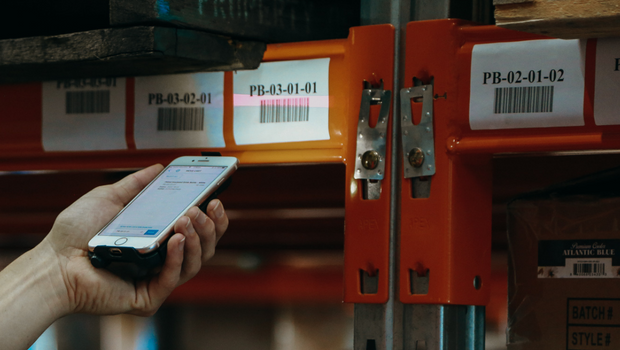· Luis Martinez · Tutorials · 4 min read
AI in Supply Chain Automation - Smart Supply Chain Solutions and Logistics Process Automation

Client: A Leading Global Supply Chain Provider Industry: Supply Chain & Logistics Solution: Custom Mobile Application Development/Custom Analytics and Orchestration Platform
Case Study One: AI Powered Mobile App
Challenge:
A leading global supply chain provider needed a modern, mobile-first solution to streamline and digitize part tracking across its logistics operations. Existing workflows were manual, error-prone, and disconnected from the company’s Salesforce CRM as well as global shipping carriers like DHL, UPS and FedEx.
Solution:
We developed a custom AI-powered mobile application purpose-built for this organization’s internal logistics teams. The app allows users to scan physical parts using OCR and advanced image recognition technology to automatically extract relevant data from labels and barcodes with high accuracy. Once scanned, users can update the part’s status (such as received, not received, or damaged) directly from the app. These updates are seamlessly synced with Salesforce in real-time, ensuring accurate and up-to-date inventory records. Additionally, The app also supports the creation of new parts on the go, eliminating the need for back-office input and reducing delays. To further streamline workflows, we integrated the application with major global carriers including UPS, DHL, and FedEx, enabling seamless access to shipment data, tracking, and status updates within the same interface.
Results:
- AI-powered scanning dramatically reduced manual data entry and errors
- Reduced manual errors by automating part identification and status tracking
- Direct carrier integrations with UPS, DHL, and FedEx centralized logistics data and actions
- Improved data visibility across teams via direct Salesforce integration
- On-the-go functionality empowered field teams with full part lifecycle control from their mobile devices
This solution empowered them with a faster, smarter way to manage logistics, right from the palm of their hand.
Case Study Two: Custom Analytics and Orchestration Platform
Challenge:
A global supply chain provider sought to improve how it monitored and managed the lifecycle of service parts across its operations. Disconnected systems, manual processes, and limited visibility made it difficult to identify inefficiencies or respond proactively to potential issues. They needed a unified solution to extract, process, and visualize data across all stages of their service supply chain.
Solution:
We developed a customized analytics and orchestration platform that integrates seamlessly with the client’s existing systems. The solution provides a connected view across planning, delivery, and recovery phases. It captures data from various sources, analyses it with AI, and presents actionable insights in real time.
Key capabilities include:
- Centralized data integration across multiple siloed systems
- AI-powered analytics to identify trends, anomalies, and potential risks
- Real-time monitoring and alerting to flag issues early
- Modular interface that allows teams to visualize insights and take action quickly
By removing manual bottlenecks and connecting disparate data points, the platform delivers a powerful foundation for operational decision-making.
Impact:
- Enhanced supply chain efficiency through proactive issue detection
- Reduced delays and disruptions by addressing problems before they escalate
- Improved operational visibility across the entire part lifecycle
- Stronger outcomes through smarter, data-driven service
This solution enabled the client to transform a reactive service environment into a predictive and responsive supply chain operation, unlocking new levels of performance and value.
Case Study Three: Carrier integration
Challenge:
Shipping and pickup workflows are a core part of service supply chain operations. Managing them manually, across multiple carriers and systems, creates delays and increases the risk of errors. Our client needed a streamlined, reliable solution to automate this process directly from their existing CRM.
Solution:
We developed a custom carrier integration API that connects the client’s CRM with major global carriers like FedEx, UPS, and DHL. This system enables users to:
- Initiate pickup or label generation requests directly within the CRM
- Trigger real-time communication with the appropriate carrier via our API
- Receive and process carrier responses, such as tracking numbers and shipment confirmations
- Automatically update the CRM with new records based on the carrier’s response
The entire process happens seamlessly behind the scenes: no manual entry, no switching between platforms, and no delay in service execution.
Impact:
- Faster and more accurate shipping processes, initiated directly from the CRM
- Seamless integration with multiple global carriers through a unified API
- Real-time data flow between carriers and CRM, reducing lag and errors
- Improved tracking and visibility of shipments within core systems
- Reduced administrative overhead for support and logistics teams
This project helped our client eliminate friction in their shipping workflows, boosting efficiency and ensuring a more connected experience across their service supply chain.
Overall Impact & ROI:
Across all three projects, the client achieved transformative results:
Quantified Results:
- 70% reduction in manual data entry time through AI-powered scanning
- 35% improvement in inventory accuracy and visibility
- 50% faster shipping and pickup workflows
- €2.1M annual savings from reduced errors and improved efficiency
- Production deployment in 8 weeks, from concept to live system
Strategic Outcomes:
- Transformed reactive service into predictive, responsive operations
- Unified data across multiple carriers and systems
- Empowered field teams with mobile-first tools
- Created foundation for further AI-powered optimization
This case study demonstrates how AI automation can transform global supply chain operations. Contact us to discuss how similar solutions could work for your logistics and supply chain challenges.
